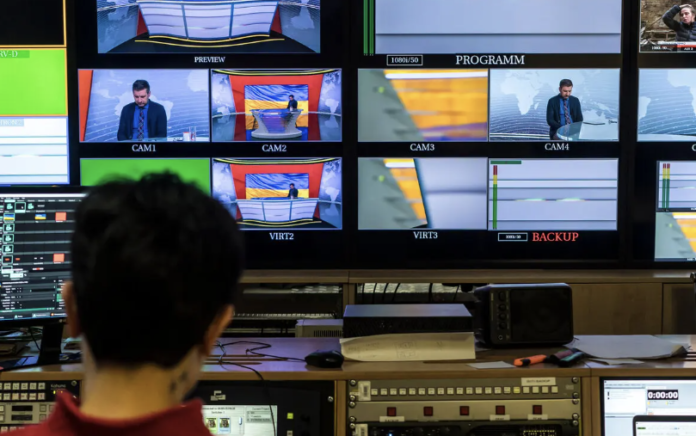The government approved by the Government, aimed at counteracting the Russian misinformation and raising the moral spirit, is criticized for drawing a pink picture of war.
From the first days of a full -scale invasion of Russia in 2022, Ukrainians had access to a single source of television news - round -the -clock broadcasting, rich personnel, as Ukrainian tanks undermine Russian positions, doctors working near the front line, and political leaders unite support abroad.
The only news telephony was the main tool of information war in Ukraine, highly appreciated by government officials who regularly act in it, for his role in counteracting the Russian misinformation and maintaining the moral spirit.
"It's a weapon," said President of Ukraine Vladimir Zelensky in January last year about a program that is jointly created and broadcasting the country's largest TV channels around the clock.
But after almost two years of the war, the Ukrainians were tired of the Telelorphone. What was once considered a key tool for keeping the country is now making fun of nothing more than a government.
According to Alexander Bogutsky, executive director of Starlight Media, the main media group that participates in the project, the program is officially put into effect by the Presidential Decree, and about 40 percent of its funding comes from the government.
But it remains unclear how much the Ukrainian authorities control the editorial board of the TEMACHUN.
Several media experts and journalists who participated in the news release said that Oleksandr Tkachenko, who was Minister of Culture and Information of Ukraine by July, participated in meetings to coordinate news coverage. The ministry did not respond to several requests for comments.
The concern about the impact of the government also arose after the several channels governed by Mr. Zelensky's political opponents were banned from joining the Telelorphone.
"We need reliable, balanced information that our society could analyze and on the basis of which people could make decisions," said Mr. Yurchyshyn.
Other anxiety is that Telearaphone has turned into a PR operation for Mr. Zelensky, who remains the political figure that is most trusted in Ukraine, but in recent months, his ratings have declined.
The numbers collected by the custom show that the members of the "servant of the people", the parties of Mr. Zelensky, amounted to more than 68 percent of the political guests of the program in 2023, and this share is growing steadily throughout the year. The servant of the people controls half of places in parliament.
"It is like a unanimous point of view," said 41-year-old lawyer Andrey Huntil about a recent evening near the Golden Gate, reconstructed gates, which in the Middle Ages indicated entry to Kiev. “It's not really what we need. It's not useful. "


